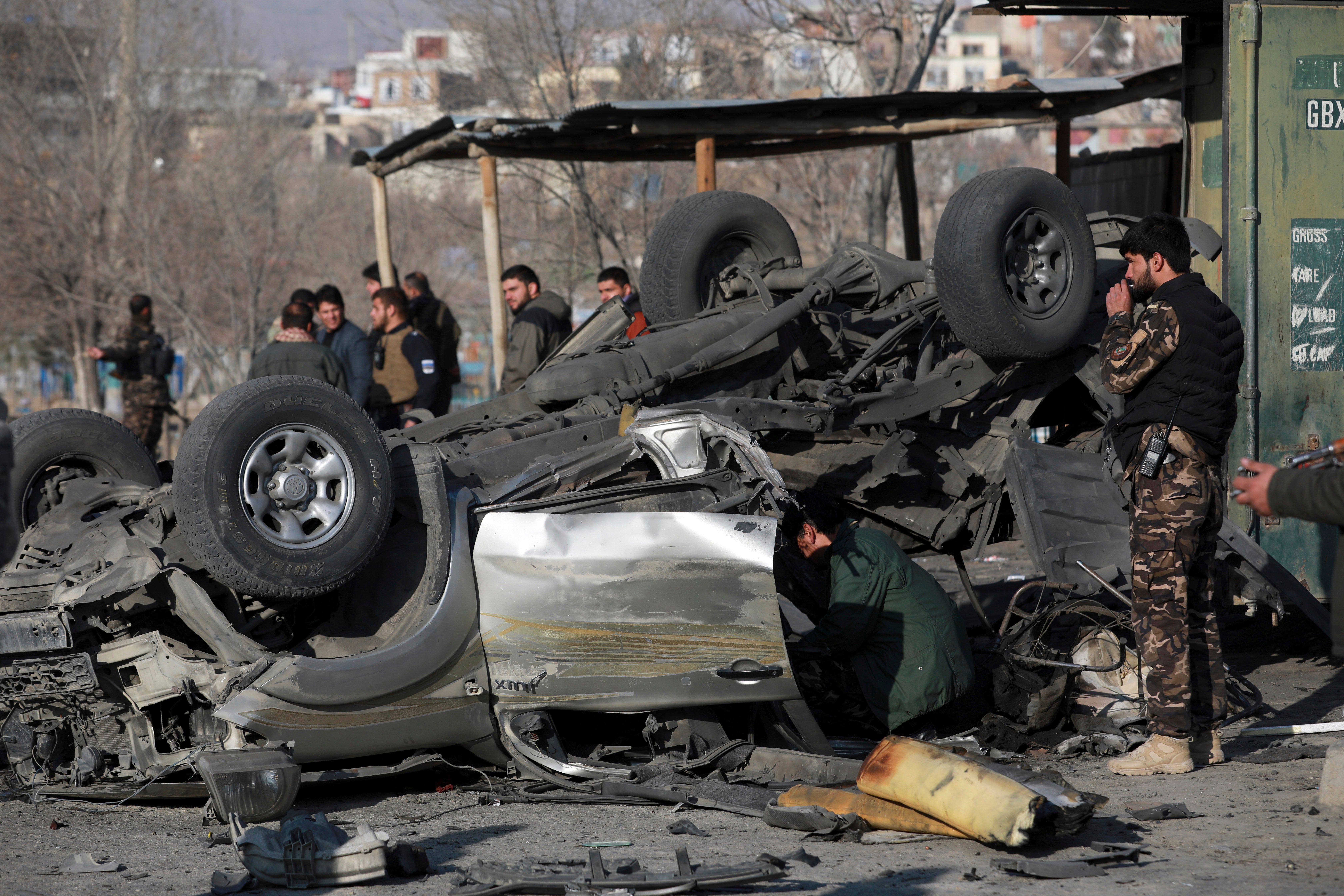Taliban team in Pakistan as calls grow for Afghan cease-fire
A Taliban team, led by the co-founder of the insurgent movement, has arrived in Islamabad for talks with Pakistani government leaders

Your support helps us to tell the story
From reproductive rights to climate change to Big Tech, The Independent is on the ground when the story is developing. Whether it's investigating the financials of Elon Musk's pro-Trump PAC or producing our latest documentary, 'The A Word', which shines a light on the American women fighting for reproductive rights, we know how important it is to parse out the facts from the messaging.
At such a critical moment in US history, we need reporters on the ground. Your donation allows us to keep sending journalists to speak to both sides of the story.
The Independent is trusted by Americans across the entire political spectrum. And unlike many other quality news outlets, we choose not to lock Americans out of our reporting and analysis with paywalls. We believe quality journalism should be available to everyone, paid for by those who can afford it.
Your support makes all the difference.A Taliban team led by the co-founder of the insurgent movement, arrived Wednesday in Islamabad for talks with Pakistani government leaders amid growing calls for a reduction in violence in Afghanistan
Mullah Abdul Ghani Baradar and his delegation were summoned to Islamabad from Qatar where they have been negotiating since September with Afghan government representatives, officials close to the talks said. The visit comes a day after U.S. peace envoy Zalmay Khalilzad made a quick trip to Pakistan’s powerful military in the garrison city of Rawalpindi.
The Pakistani military has wielded significant influence over the Taliban and has links with some of the leaders — then part of the U.S.-backed mujahedeen — dating back to the 1980s war and the former Soviet Union's invasion of Afghanistan. The Taliban emerged in 1994 in response to runaway corruption and violence of mujahedeen warlords who took power from the former communist regime in 1992.
Pakistan was key in getting the Taliban to the negotiation table with the United States in 2018. Those talks eventually led to the U.S.-Taliban deal that was signed in February, providing for the withdrawal of U.S. and NATO troops from Afghanistan.
The deal also paved way for the start of talks between the Taliban and the Afghan government, which began in September in efforts to hammer out a roadmap for post-war Afghanistan. The talks, after some recent procedural progress, have been suspended till early January though there is speculation the resumption could be further delayed.
Kabul has called for the talks to resume inside Afghanistan while the Taliban insist they continue in Doha, Qatar, where they maintain a political office.
Meanwhile, Washington has been increasingly frustrated by a spike in violence in Afghanistan and calls for a cease-fire have been reaching crescendo levels in both Kabul and in Washington.
Taliban spokesman Mohammad Naeem tweeted late Tuesday that “a high level delegation” led by Baradar “left for Islamabad at the official invitation" of Pakistan. The delegation was to meet Pakistani Prime Minister Imran Khan and Foreign Minister Shah Mahmood Qureshi, as well as military officials.
However, it is unclear if the Taliban visit to Pakistan would yield any progress toward even a temporary cease-fire in Afghanistan.
President Donald Trump accelerated the withdrawal of U.S. troops from Afghanistan earlier this month, with another 2,000 troops returning home by early January and leaving just 2,500 American soldiers behind.
The final withdrawal hinges on Taliban fulfilling their commitment to cut off al-Qaida and other militant groups and ensure that Afghan territory is not used for attacks on the United States. The Islamic State group — a rival of the Taliban — is seen as America's greatest security threat in Afghanistan.
Khalilzad has called on both sides in the Qatar talks to press toward a political solution, but the stepped-up violence by the Taliban is undermining progress, according to officials familiar with the talks. They spoke on condition of anonymity to discuss the negotiations.
The Taliban have so far rejected calls for a cease-fire to be included in the agenda of the Qatar talks.
In Afghanistan, a roadside bomb struck a vehicle in Kabul early on Wednesday, wounding two people, according to the Kabul police spokesman, Ferdaws Faramarz. And on Tuesday, a lawyer was shot and killed in the latest target killings sweeping the country. Afghan police have arrested two suspects in connection with the shooting.